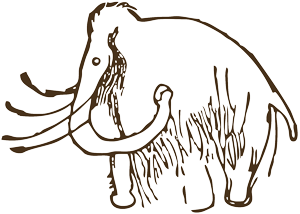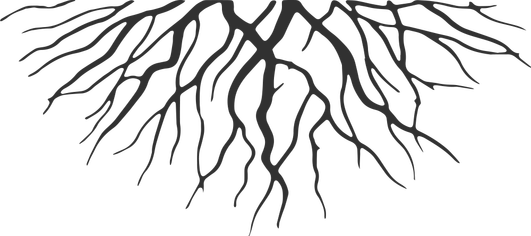What if the roots of our personal pain and the planet’s suffering were not separate, but intricately intertwined with the story of our past? What if the path to peace and healing lies in recognizing our shared history and embracing the collective wounds of humanity?
In the fabric of Western society, we have woven a culture that overlooks its youth and forgets its elders. The rites of initiation and the ceremonies that once marked the passage into adulthood have faded, as has the deep sense of belonging to a community or clan, with its lifeblood of mutual support. The journey into adulthood has become uncertain, and the universal human need to feel connected to a group—or even to a place—is now rendered elusive by the relentless pace of modern life and the growing chasm between generations. It is no wonder we see a resurgence of interest in genealogy, psychogenealogy, and spiritual practices rooted in ancestral healing.
Many methods exist to explore and transform our transgenerational inheritance—the traumas, burdens, and pains passed down like unseen threads from one generation to the next. Yet, delving into a few branches of the family tree does not fully unearth the foundation of our wounds. Beneath our familial history lies a systemic conditioning—broad and pervasive—that shapes us all. Through my own work with ancestral healing, I have uncovered new dimensions of understanding, rich with meaning.
The traumas endured by my family over the past two centuries, though somatically present in my being as epigenetic imprints, do not wholly define me.
Sitting by the fire, I sense the presence of my distant ancestors, the peoples of my European heritage. The flicker of flames recalls their ancient ceremonies and rituals. The sharing circles I partake in evoke how they once gathered to exchange stories, myths, and dreams, all while nourished by the day’s hunt and harvest. In my quest for belonging, I search for their stories, their knowledge, their wisdom—hoping to unearth answers that might redeem our fractured humanity.
Their relational way of living, grounded in harmony with the living world and reverence for all beings, carried our species through 98% of human history. There is a treasure here—a way of being that begs to be remembered and reclaimed.
The rise of agriculture and animal domestication marked our first steps away from the natural world. Where once all species were seen as equals, the living world was reclassified as property. Animals were tamed, lands reshaped, and gods created to mediate the chasm between the Earth and a humanity that had begun to forget its origins. This estrangement from nature only deepened over millennia, with the rise of monotheistic religions, capitalism, and industrialization—a path that has led us to an unprecedented social and ecological crisis.
What if this disconnection from nature is our greatest wound? What if the key to resolving the crises we face—collectively, familiarly, and personally—lies in the animist wisdom of our ancestors? What if the truths they lived by are what could truly define us?
To move forward, we must look far beyond the immediate branches of our family trees, beyond the scars of our Western mindsets, beyond the confines of systemic conditioning. Within us lies the accumulated wisdom of countless generations—a wealth of knowledge flowing through our veins, waiting to be rediscovered. This ancient inheritance, if embraced, has the power to transform and heal, not just for ourselves but for anyone willing to remember.
For me, reconnecting with my ancestral roots has been an invitation to reawaken the knowledge of my lineage. There is a wisdom here, one no science can replicate—a wisdom I often wish our so-called leaders would heed. Imagine if they listened to those who still live as our ancestors did, seeking inspiration in their ways to address conflict, injustice, and despair, rather than imposing upon them our fragmented, Western frameworks. Imagine if we could initiate our youth into life’s sacred rhythms and honor our elders, as many cultures still do.
When I delve into the branches of my family tree to explore the emotional imprints of recent generations, I feel the weight borne by my great-grandparents, who survived two world wars on their ancestral land, already ensnared in the industrial age with its attendant traumas. I know, too, that the five generations before them fared little better. To truly understand the depth of our cultural wounds, I had to reach much further back. Only by traveling into the distant past could I glimpse a foundation for healing.
In this journey, I’ve been deeply moved by the words of Professor Daniel Foor, author of Ancestral Medicine: Rituals for Personal and Family Healing, He writes, “When we reconcile with ancestors who experienced different types of persecution or who enacted violence and oppression, we make repairs in our personal psyches and family histories that, in turn, mend cracks in the larger spirit of humanity.”
This, for me, is the beauty of ancestral healing. It offers a profound, intuitive process that has not only transformed me but also created ripples of change within my ancestral lineage. If healing our ancestors can help heal the collective, then my own healing is fortified in return. How can the fruits of a tree grow healthy and abundant if its roots are not nourished?
By honoring my ancestors and forging a relationship with them, I have come to understand my own authenticity and my place in the world. A deep sense of belonging is now with me wherever I go. Life feels richer, more meaningful, as each day becomes a rediscovery of both ancient and new ways of being, acting, or simply resting. My ancestors, unseen yet ever present, are my greatest guides. They show me how to stand firm and clear-headed amidst times of crisis, when the collapse of society seems inevitable. Their wisdom grounds me and strengthens my resolve to be an agent of change.
True liberation of the self, in all its glory, arises from our connection to all that lives—the seen and unseen, the ancestors, and every other species. We are not separate from nature. We are nature. We are the Earth. We are our Ancestors. Our bodies and our collective form an ecosystem, interdependent and whole. Only when we embrace this truth can we begin to restore the ecological and personal harmony that is our birthright.


